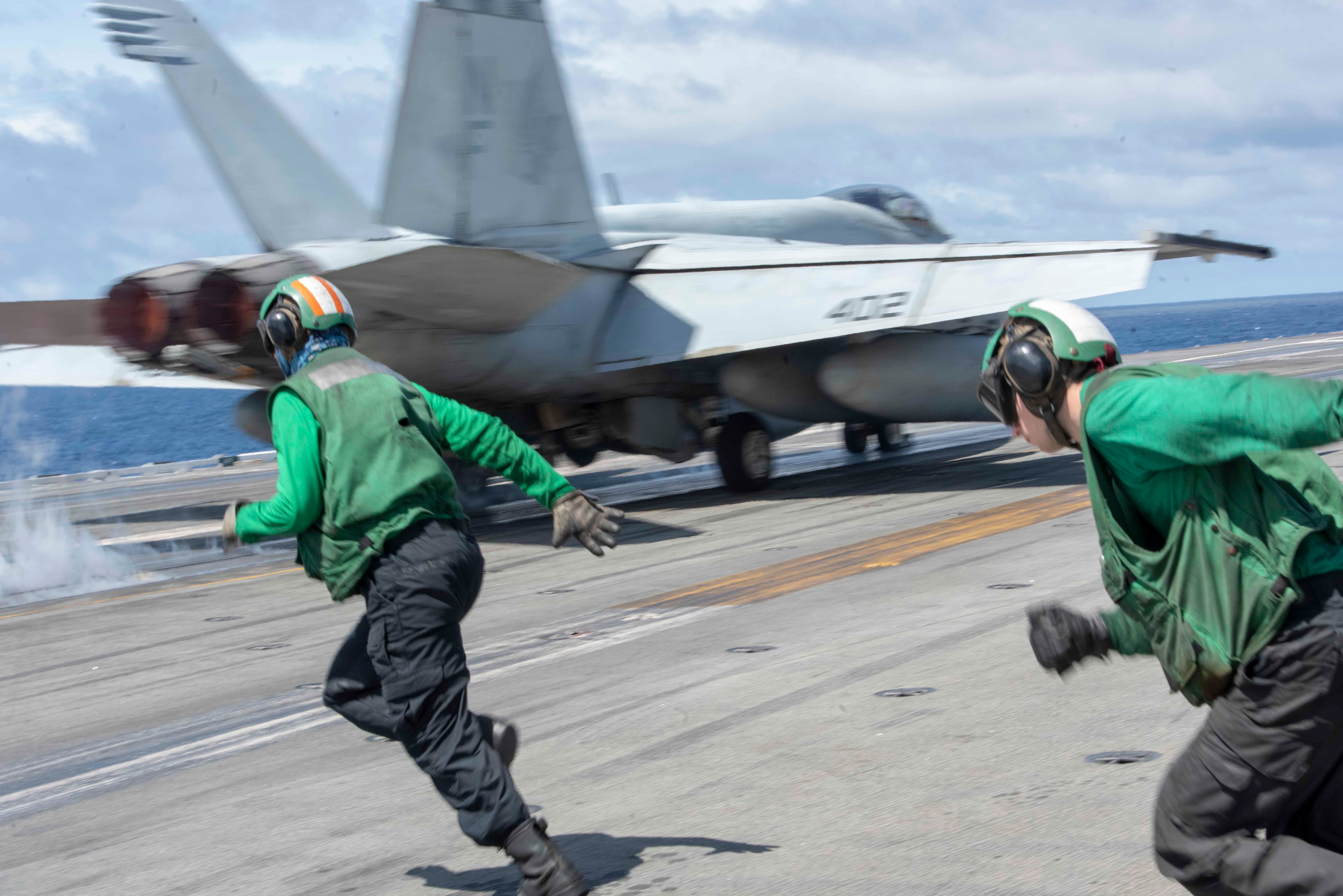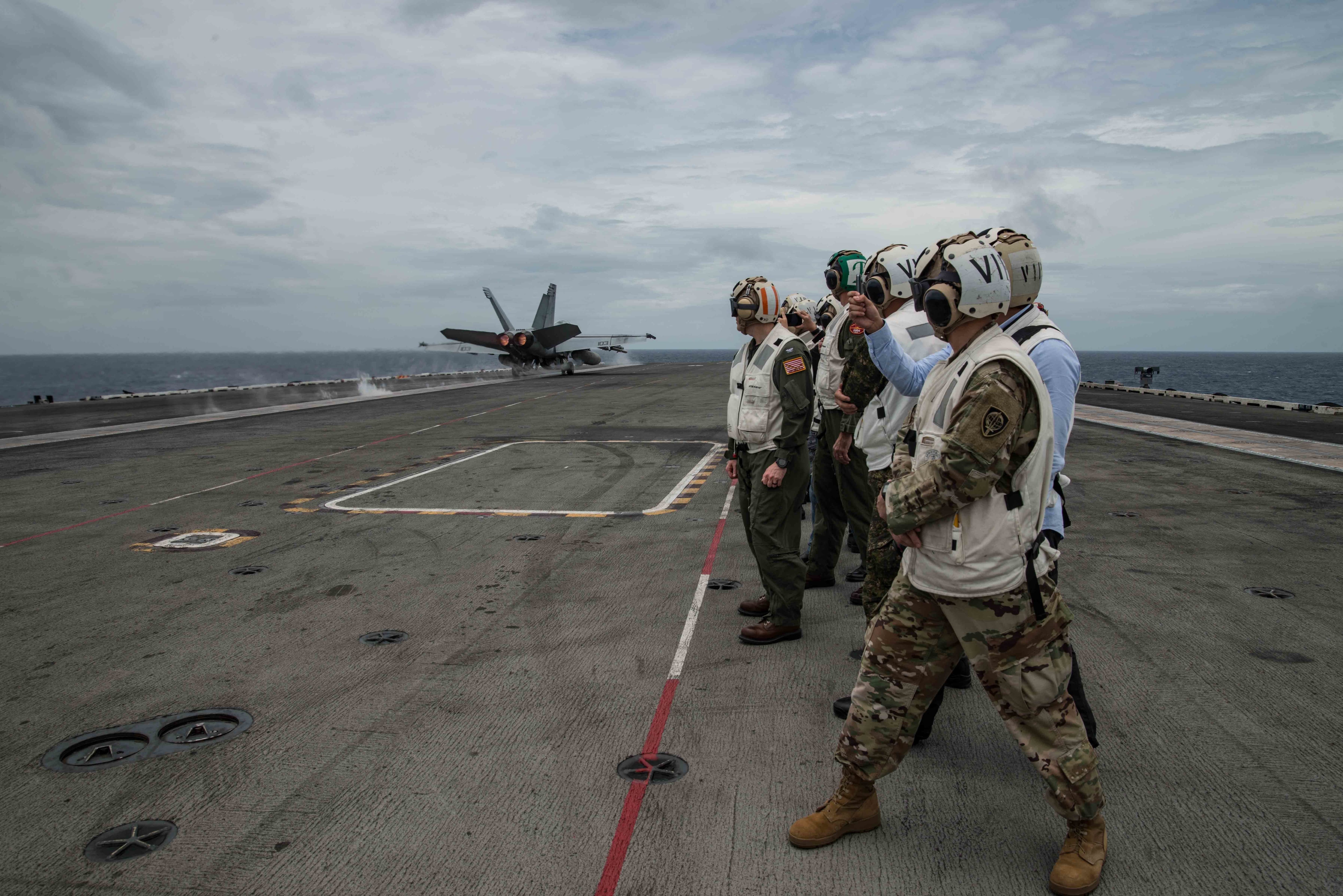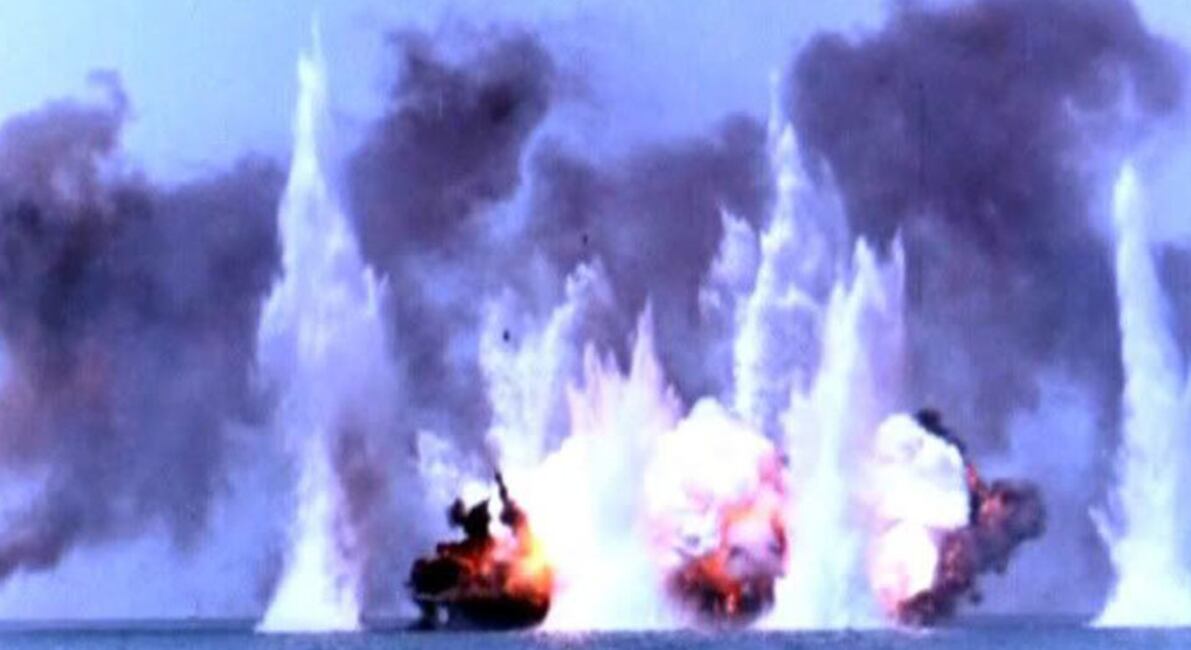BEIJING — This is your weekly look at recent developments in the South China Sea, where China is pitted against smaller neighbors in multiple disputes over islands, coral reefs and lagoons. The waters are a major shipping route for global commerce and rich in fish and possible oil and gas reserves.
PHILIPPINES ASKS CHINA TO EXPLAIN PRESENCE OF RESEARCH VESSELS, WARSHIPS
Philippine Defense Secretary Delfin Lorenzana has asked Beijing to explain the activities of Chinese research vessels and warships in what the Philippines claims as its waters.
Lorenzana said Friday that China did not ask for permission to send several warships through the Sibutu Strait at the southern tip of the Philippine archipelago on four occasions between February and July. He said two Chinese research ships have also been operating in the Philippines’ exclusive economic zone.
"What we need really is to allay the fears of the neighbors of China, to inform the other countries what their ships are doing there, not only the survey ship, but also their warships passing through our territorial waters," Lorenzana told Philippine news channel ANC.
Philippine President Rodrigo Duterte is due to visit Beijing this month, and he has pledged to raise the issue of the July 12, 2016, ruling by a tribunal in The Hague, Netherlands, that rejected China’s “nine-dash line” claim to much of the South China Sea. The nine-dash term refers to the markings that outline Chinese-claimed territory on maps of the sea.
Former Philippine Foreign Secretary Albert del Rosario said last month that Duterte's failure to seek Chinese compliance with the arbitration ruling has resulted in "more unlawful acts of intimidation and bullying in the South China Sea."
China refused to participate in the arbitration case that Duterte's predecessor, Benigno Aquino III, initiated. Duterte has said he told Chinese President Xi Jinping of his plan to drill for oil in the disputed waters in their first meeting in Beijing in 2016 and that he was warned by Xi of potential "trouble" if he insisted.

CHINA RESEARCH VESSELS LEAVE VIETNAM AFTER STANDOFF
China's marine survey vessel Haiyang Dizhi 8 departed Vietnam's exclusive economic zone last Wednesday after a tense standoff.
The ship entered waters near Vietnam-controlled Vanguard Bank in the Spratly Islands in early July. Its stated purpose was to conduct a study of the ocean floor, but it also blocked a Vietnamese oil exploration project and was protected by Chinese coast guard ships equipped with guns and helicopters.
Vietnam responded by sending its own coast guard vessels to follow the Chinese surveying ship, creating a standoff not seen since May 2014, when Chinese and Vietnamese vessels confronted each other when China's national oil company moved an exploratory oil platform into waters Vietnam considers its territory.
Vietnam had demanded China remove the survey ship from Vanguard Bank, which it says lies within Vietnam's 200 nautical mile (370 kilometer) exclusive economic zone.

U.S. CARRIER SAILS THROUGH SOUTH CHINA SEA
A U.S. aircraft carrier sailed through the disputed South China Sea in the latest show of America's military might amid new territorial flare-ups involving China and three rival claimant states.
The aircraft carrier Ronald Reagan launched and recovered F/A-18E/F Super Hornet jets, reconnaissance planes and helicopters while steaming toward Manila for a port visit.
Armed cruisers kept watch a few kilometers away from the carrier.
Rear Adm. Karl Thomas told journalists that the American military presence helps provide security and stability to foster diplomatic talks among rival claimant nations in the South China Sea. He made the comment when asked what message the warship's presence was sending amid tensions involving China and rival claimants Vietnam, Malaysia, Taiwan, Brunei and the Philippines over long-contested maritime space.
"We just think that folks should follow the international law and our presence allows us to provide that security and stability in the background for these discussions to take place," Thomas said.
Last month, Washington expressed concerns over China's "repeated provocative actions aimed at the offshore oil and gas development of other claimant states."
Vietnam has demanded that China remove a survey ship from Vanguard Bank, which it says lies within Vietnam's 200 nautical mile (370 kilometer) exclusive economic zone.
China has had a dispute with Malaysia over Luconia Shoal, and Manila protested after a Chinese fishing vessel hit a fishing boat with 22 Filipinos at Reed Bank and left as it sank at night in June. The Filipinos were rescued by a Vietnamese fishing vessel.
RELATED

Associated Press journalists Jim Gomez and Bullit Marquez in Manila, Philippines, contributed to this report.




